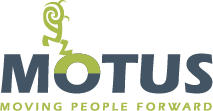In our October Community Conversations, Orlando Williams had the wonderful privilege to chat with former Nike president Elliott Hill about winning leadership strategies and knowing the next right move.
After a successful 32-year career, Hill recently retired from Nike and joined BDT Capital as a Senior Advisor. He has broad expertise in global strategy, brand building, leadership development, consumer behavior and data, retail, and digital. Most recently, Hill served as President of Consumer and Marketplace at Nike, with oversight across four geographies: North America; Europe, Middle East, and Africa (EMEA); Greater China; and Asia Pacific Latin America. He was also entrusted with the leadership of Nike’s Global Sales organization, Marketing team, and the Nike Direct to Consumer organization. As part of his role, Hill was also responsible for the Jordan Brand business.
Here are just some of the lessons he shared:
Stay curious and know the right time to take a risk: “I’m always a really thoughtful person when it comes to making a huge decision around my life and making a move. Maybe, you know, too logical. I sit down, like most people, you weigh the pros and the cons. Even though sometimes the cons might outweigh the yes, the decision to go. I’ve said ‘yes’ because I liked the newness and freshness and I’m a very curious person. So, I’ve often said ‘yes’ just because I like going to meet new people to experience new things, to learn new things. And I think that’s helped keep me fresh and alive as a human being and as a leader. Be thoughtful, logical about the decision, but challenge yourself to get out of your comfort zone and to be curious, and I think being curious leads us to greater and greater things as a human being and as a teammate. And ultimately as a leader.”
Don’t be afraid to ask questions: After joining BDT Capital as a senior advisor, Hill realized he needed help. “Every day is a learning moment to the point where I was sitting in on a business review with one of the companies that they own. And I texted the CFO. I said, ‘Can I schedule a one-on-one with you?’ Just so I can ask him questions. And I did, I scheduled it. You’re talking about being vulnerable – I’m the “senior advisor.” I’m the guy that’s on the call supposed to be giving them advice. And there was stuff I didn’t understand. And I was texting [the CFO] and we scheduled a one-hour call and I asked him questions and I learned from him. Always challenge yourself and push yourself to continue to learn, grow, develop.”
Having a succession plan where leaders are held accountable for the growth and development of the next generation of leaders: “We have a responsibility to be thoughtful about those that are below us and what’s their trajectory upwardly, and to have those conversations with them. And more importantly than that, commit to helping grow and develop those individuals… Our responsibility as leaders is to have a plan for the roles that we are responsible for the individuals and not only in terms of a plan, but to help grow and develop them.”
Know who your advocates are in rooms where decisions are made – and you have a responsibility to pay it forward: “One, as you’re moving up through the organization and make sure you have the advocates, those individuals that are in the room that are going to help pull you through the organization is critical. And when you do get into leadership positions, don’t forget how you got there. Someone pulled you through, so pay it forward. Know who your advocates are, who’s in the room when decisions are being made. What are they saying about you and why have you earned their respect and those words? And then number two, when you get in those roles where you are making decisions about an individual’s careers, we have a responsibility to pay it forward.”
On what he tells the kids he coaches: “Having a plan or a vision of where you want to go is critically important. Again, doesn’t just mean in life or a job, it could be inside of that season or that game. You don’t just go play a game. You have to go into the game with already a mindset of how you want to perform.”
Balance a competitive edge with empathy and emotional intelligence. Be able to read a room, and know when to dial it up and when to dial it down: “Our emotional intelligence is as important as that drive and that competitive edge. And maybe if you can combine the two, I’d say that’s when it gets special…And if you can get the two to work together, I think that’s when it gets real special. But you gotta have the EQ and you gotta know when to dial it up, dial it down. You gotta be aware, you gotta be considerate and you gotta be thoughtful. You gotta read the room and, and know when and how to play that, because it can’t be a hundred percent all the time – especially in the business world, especially in life. And you can’t win every time. Sometimes I’d pick fights just to lose so that people thought, ‘Oh, he does lose fights every once in a while.’ It goes back to the EQ piece. The emotional intelligence is critical.
On Michael Jordan’s leadership: “No one had more of a competitive desire than [Jordan], but what he also knew is that he was a part of the team. He learned it. If you watched it, he learned it over time to be a part of the team. He’d think, ‘I got to get Rodman in the game right away. I’ll let him get the rebound just so he feels like he’s in the game.’ Being a great leader and a performer, both, requires knowing when and how to share the spotlight.”
See the full interview below:






